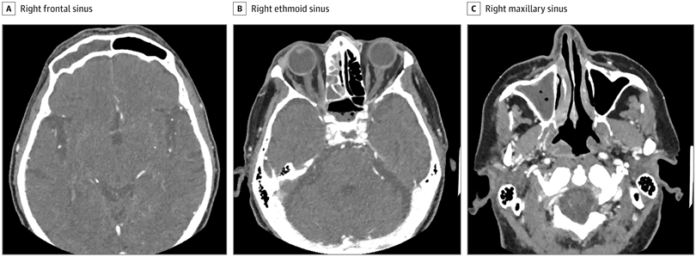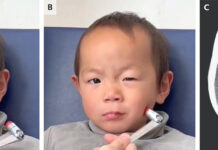
US man lost his vision two days after testing positive for COVID-19
This article describes the case of a US man who lost vision in his right eye for two days after testing positive for SARS-CoV-2. The case study explains how SARS-CoV-2 messes the immune system in ways that causes the body to attack itself. An unnamed patient in his 70s presented with symptoms of a runny nose and was diagnosed with COVID-19. Three weeks later, the patient came back to the hospital with several other symptoms.
According to the report, the patient presented with a headache, a week after recovering from the worst bout of COVID-19. The report was detailed by detailed by a team of doctors from the Columbia University Vagelos College of Physicians and Surgeons in New York. Soon after, the patient also suffered with fading vision in his right eye and could only make out broad motions. The pain was also triggered with movement.
Although cases of impeded vision with COVID-19 are not common, they are not unheard of either. There have been a number of cases reported that hint at potential links. This particular case stands out because the combination of symptoms, including intense headaches and discomfort in the eye itself. Doctors further advised a CT scan which showed inflamed sinuses that extended to the right side of his face. The swelling was further causing the bone itself to erode, which led to an emergency removal of the inflamed material from the cavities.
At first the surgery seemed like a winning strategy. But soon after the pain returned and the patient’s vision worsened.
Tissue culture was positive for Streptococcus constellatus. The bacteria constitutes the normal flora of the intestines and oral cavity, however, when relocated to other areas, it can cause serious complications. In addition, the patient was not responding to antibiotics. Further investigations showed the presence of antibody called IgG4, consistent with the diagnosis of IgG4-related diseases, that can affect nearly any organ system.
Doctors prescribed the patient a course of steroids. The patient showed complete recovery three weeks later.
Could the patient’s SARS-CoV-2 infection have played a role?
We know that there is a possible link and that SARS-CoV-2 has the ability to mess with our immune system. While the cause of IgG4-related diseases is not know, there are often a large number of cytotoxic CD4-positive T-cell, white blood cells that fight infection associated with it, meaning the presence of an infection.
However, it is too soon to draw a solid connection between IgG4-related diseases and COVID-19.
Source: JAMA



